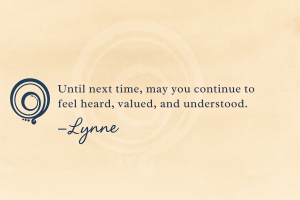Dear Therapist,
I finally talked to my doctor about how depressed I’ve been feeling. I can’t really pinpoint one specific reason why. My doctor suggested I take an antidepressant but I don’t want to take a “happy pill”. I am worried about how I will feel on medication and shouldn’t I feel these feelings and not avoid them?
-Worried about medication
Dear Worried about medication,
Talking with your doctor is a courageous first step in addressing what you’ve been feeling. I will say not enough doctors ask patients in their annual checkups aside from part of the paperwork they have you fill out annually when you come in. I’ve been to appointments where there’s a questionnaire in the paperwork of waivers, personal information updates, etc, that ask me to circle any symptoms I might be having ranging from dizziness to sadness. Other times the questions are, “have you felt sad; if so how often?”, along with other similar questions. While it’s good they are addressing it in some manner, it’s not enough. Patients should be asked when they’re in the exam room too, face to face. It’s not often you will get someone to just speak up about it. With that being said, however you came to talk to your doctor about how you’re feeling, I commend you on being forthcoming. It’s not easy and as far as we have come in the mental health field it’s still a stigma that prevents people from having open and honest communication with their providers.
Trying to figure out the origin of depression doesn’t always show up to be because of one single reason. Depression is different for every person and there isn’t necessarily one clear cause. It can be influenced by a combination of biological factors, such as brain chemistry or genetics, life circumstances, stressors, and even seasons of life. Understanding that there isn’t necessarily one neat answer can relieve some of the pressure you may feel to explain why you feel this way.
Regarding the suggestion made by your doctor about taking an antidepressant, it’s not uncommon for a person to have fears about medication whether it be about side effects or even feeling shame around taking medication. When a client talks about this in therapy sessions with me I will say, “If your doctor suggested medication for high blood pressure, would you take it?” and the answer is inevitably “yes”. My point is mental health is just as important as your physical health and there should be no shame in taking medication to help lift you up a bit or offer some stabilization while you work through some life circumstances. As for the term used often, “happy pills” for antidepressants, it’s not really how they work. The goal isn’t to erase the sad feelings or force you to feel some sort of artificial happiness but rather to bring you up to or close to your baseline mood. Antidepressants work with your brain chemistry so you can better manage your mood and cope with daily functioning. When you’re able to create better stability with your mood it’s then easier to engage in therapies, self-care, or other healing practices.
It’s also important to know that you don’t have to choose between medication and “feeling your feelings.” Medication isn’t about avoidance, it’s about giving your brain the support it may need so that you can process emotions in a healthier, less overwhelming way. Think of it like wearing glasses: the lenses don’t change who you are, they just help you see more clearly so you can move through the world with less strain.
If you’re unsure, you might talk with your doctor about starting at a low dose, what possible side effects could be, and how long it might take to notice changes. You also have the right to revisit the decision at any point, trying medication doesn’t mean you’re committing for life.
Finally, if you haven’t engaged in therapy you might want to try finding a therapist first to see if some of what is happening can be worked through with therapeutic support. I encourage you to combine any medical treatment with therapy, healthy routines, movement, connection with supportive people, and gentle self-compassion. Healing is rarely “one-size-fits-all”, it’s about finding the right mix of tools that help you feel more like yourself again.
You are not alone in this struggle, and asking questions (just as you’re doing now) is a powerful part of the healing process. Thank you for your question and I hope you find the best way for you to navigate through this process of healing.

This column is for informational purposes only and is not a substitute for professional mental health care. Reading this does not create a therapist-client relationship. If you are struggling with anxiety or another mental health concern, please reach out to a licensed professional in your area for support. If you are in crisis or thinking of harming yourself, please call 988 in the U.S. or go to your nearest emergency room.